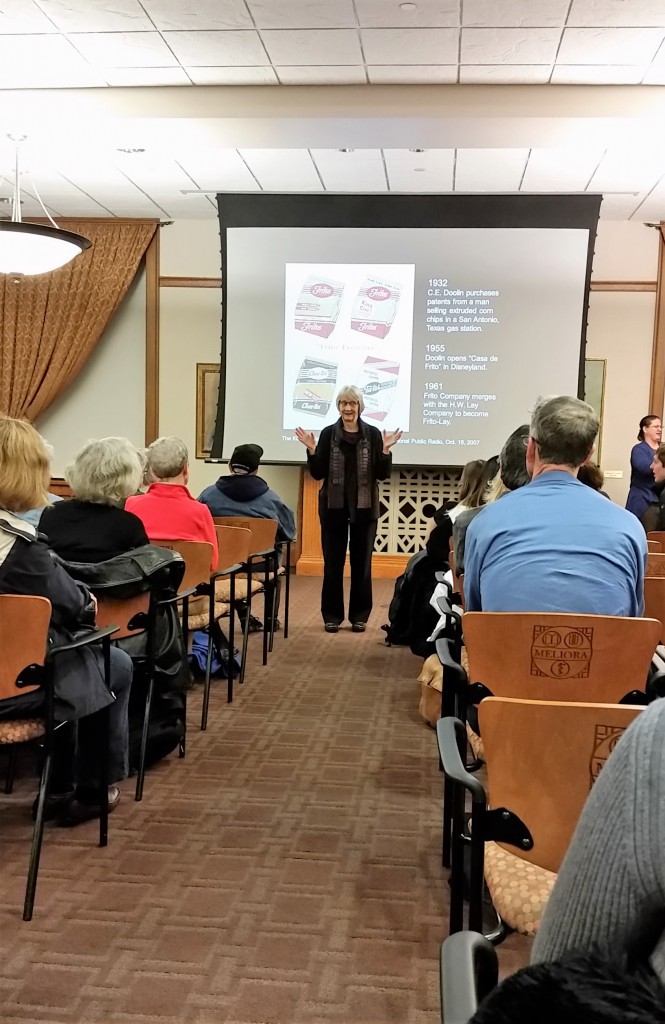by Sara Kowalski, Class of 2017, Humanities Fellow
As part of their Memory and Forgetting series, the Humanities Center has hosted and will continue to host some amazing guests this academic year. Our November guest was none other than Pulitzer Prize-winner Laurel Thatcher Ulrich, a historian, women’s studies scholar, and professor at Harvard.
Thatcher gave a vibrant lecture called “Curiosities: Histories through Odd Things,” which was as much about the history of human curiosity as the history of the tortilla! Museums have been a part of our culture since the 16th century, when they were merely “strange collections” and “cabinets of curiosity.”
Curiosity is the key here. It is, after all, the simple desire to know more, and so it is the root of education itself. With her students, Thatcher conducted a project in which they pillaged the various libraries and collections at Harvard to accumulate 269 thought-provoking “tangible objects,” which they then presented together in an exhibition. The students researched the history behind each of these objects. Thatcher’s prime example was a preserved, labeled, slightly-torn tortilla. The questions were: Where did this tortilla come from? Why did someone consider it worth preserving in Harvard’s library? In short, what is its story?
Thatcher was able to uncover this story, and she presented it to the captivated audience here at the University of Rochester. The takeaway was this: Every thing has a history. If you are curious about the things around you, the world becomes more interesting and more complex. And this can have ramifications (in the case of the tortilla) in everything from civil rights to health habits.
As an added note, Thatcher pointed out that it is not strange to think someone had a good reason to collect a tortilla, or strange to want to study its history years later. But it would be improper to put one on display today as an example of some exotic or mystical foodstuff. Historians must be careful not to exotify the things they study, or write them off as either bizarre or mundane.
On a parting note, Thatcher urged everyone in the audience to go to a museum, especially a historical museum, sometime soon. She also encouraged everyone to explore the expansive archives and special collections Rochester students and faculty have at their disposal. So I extend these challenges to you. And if you come here, Rochester is an especially good place to study women’s literature!


